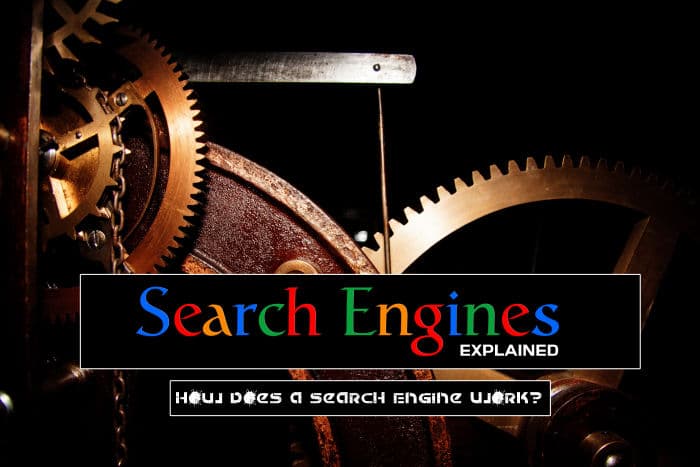Are you looking for ways to improve your website’s visibility on search engines in 2023? As a business owner or marketer, it is essential to understand the basics of Search Engine Optimization (SEO) to improve your online presence and drive traffic to your website. In this article, we will discuss several tips to optimize your search engine strategy in 2023 and to give an overview of how a Search Engine Works with all its ins and outs.
Top Strategies to Optimize Your Search Engine Rankings in 2023
In today’s digital age, having a strong online presence is crucial for any business or individual looking to succeed. Search engine optimization (SEO) is an important factor in achieving online visibility. With search engines constantly evolving and updating their algorithms, it’s important to stay up-to-date with the latest strategies for optimizing your search engine rankings. In this article, we’ll discuss the top strategies you can implement in 2023 to ensure your website ranks higher in search engine results pages and drives more traffic to your site.
Focus on User Experience
Search engines prioritize websites that provide a good user experience. Ensure your website is mobile-friendly, easy to navigate, and offers relevant and valuable content to your audience. This will keep users engaged and increase the chances of them returning to your website in the future.
Optimize Your Website for Voice Search
With the rise of virtual assistants such as Siri and Alexa, optimizing your website for voice search is crucial in 2023. Focus on long-tail keywords and natural language phrases that people are likely to use when speaking to virtual assistants.
Utilize Video Content
Video content is becoming increasingly popular and can improve your website’s ranking on search engine results pages. Create engaging and informative videos that are relevant to your audience and optimize them for search engines by including relevant titles, descriptions, and tags.
Leverage the Power of Social Media
Social media can be a valuable tool to increase your website’s visibility on search engines. Share your website’s content on social media platforms and encourage engagement with your audience by responding to comments and messages.
Invest in Local SEO
If you are a local business, investing in local SEO is critical. This involves optimizing your website for location-based keywords and phrases, including your business address, phone number, and hours of operation.
Conduct a Site Audit
Conducting a site audit is essential to identify any technical issues that may be impacting your website’s ranking on search engines. This includes identifying broken links, duplicate content, and slow loading times.
Focus on Content Quality
Lastly, focus on creating high-quality content that is relevant to your audience. Ensure your content is well-written, informative, and provides value to your readers. This will increase user engagement and improve your website’s ranking on search engine results pages.
The Beginning – Search Engine Basics
What is SEO? (Search Engine Optimization)
To understand Search Engines, it is a good idea to start off with a foundational understanding of, What is SEO? SEO is an acronym for Search Engine Optimization, which is the methodology and practice of increasing your website’s visibility on the search engine results page (ie Google).
Being found on the results page takes time and requires setting up your website, the format, and content to send correct signals to the search engines that your page or site should show up for a particular niche or topic. (You can Also Refer to my ‘What is SEO’ article here)
No matter who you talk to, there are four main components to SEO:
- On-Page SEO – This refers to your website/pages. This may get confused with technical SEO; but only covers Content, Keywords, Design, and Layout.
- Technical SEO – Technical SEO is all about making your pages easier to crawl for search engines. This is where you get into, Meta Tags, Site Speed, Schema Markup, Indexability, Link Structure, Content Structure, General Code, and etc.
- Off-Page SEO – Off-Page SEO are techniques and routines that improve your website’s ranking conducted off your website. This mostly involved link building and social signals from places such as Social Media Shares (ie Facebook / Instagram), Social Bookmarking, Guest Posts, Interviews, Infographics, etc.
- Local SEO – This last section, covers necessary tweaks to optimize your website so you can be found locally in your business area via search engines. Typical search terms are, ‘Plumber in my area’, ‘Houston Plumber’, ‘Emergency AC Repair’, etc.
Breaking Down SEO
To further illustrate what SEO is (Before getting into Search Engines specifically), I wanted to dive in a little deeper and found an excellent video to cover the basics.
Now that we got that out of the way, let’s continue with What is A Search Engine? The different types of search engines, and indexing of your website.
What is a Search Engine?
The first step to understanding how search engines work is to understand what a search engine is. A search engine is a software program or script available through the Internet that searches documents and files for keywords and returns the results of any files containing those keywords. There are many different types of search engines but all of them can be put into two major categories: Human Powered, Spider Powered, and Hybrid (Human and Spider).
Human Powered Directories

Human-powered directories also referred to as open directory system depends on human-based activities for listings. Below is how the indexing in human-powered directories works:
- The site owner submits a short description of the site to the directory along with the category it is to be listed.
- The submitted site is then manually reviewed and added to the appropriate category or rejected for listing.
- Keywords entered in a search box will be matched with the description of the sites. This means the changes made to the content of a web page are not taken into consideration as it is only the description that matters.
- A good site with good content is more likely to be reviewed for free compared to a site with poor content.
Yahoo! Directory and DMOZ were perfect examples of human-powered directories. Unfortunately, automated search engines like Google wiped all those human-powered directory-style search engines out of the web.
The downside of human-powered search engines is that it only includes websites that have been submitted to them, which means you may not find what you’re looking for especially if it’s a new web page. The other downside from the directories’ point of view is that reviewing every site submitted is very labor-intensive and costly.
Web Crawler / Spider Powered Search Engines

The next generation of search engines has programs that actively seek out new sites and read them into their indexes. These programs are called crawlers, spiders, robots, or bots. All of the largest and most popular search engines today are of this type, including Google, Yahoo, MSN, and Ask. The rest of this article is focused on how these crawler/spider-powered search engines work because more than 99% of searches are done on this type of search engine.
The Web Crawler
As mentioned above, the first part of search engines is the web crawler (AKA spider, robot, and bot). The web crawler reads pages into the search engine raw database of every page the search engine web crawler has read. Some important things to know about crawlers…
- Search bots periodically reread every web page in their database. Why does this matter?
- You don’t have to do anything when you change your site. If your site is already listed in a search engine and you make changes to your website, search engines will eventually update their information.
- You do have to be patient. The frequency of re-crawling varies depending on the search engine, the importance of your site (as determined by the search engines), and how often you update it. It could take a day or it could take more than a week.
- Search bots follow links on the pages that have already been crawled in order to find new pages. Why does this matter?
- If you add a new page to your website or create a new website, it’s important to add a link to it on a web page that is already in the search engines.
- If a web page that is already in the search engines has a link to your new page or new website, you do not need to submit a request to the search engines to crawl the new page or website, though it may still be worth doing just to be sure your website will be found quickly.
- Some search engines have forms you can submit to request a website be crawled. Why does this matter?
- If you have a new website and no sites link to it, search bots will not be able to find it. In this case, submitting a form to the search engine requesting your site be listed or indexed can get it into search engines.
- Because human-powered directories do not have search bots/web crawlers, to be listed in them you must submit a request form.
Hybrid and Other Types

Hybrid Search Engines use both web crawler-based and manual indexing for listing the sites in search results. Most crawler-based search engines like Google basically use a web crawler as a primary mechanism and human-powered directories as a secondary mechanism. For example, Google may take the description of a web page from human-powered directories and show it in the search results. As human-powered directories are disappearing, hybrid types are becoming more and more web crawler-based search engines. But still, there is manual filtering of search results happens to remove the copied and spammy sites. When a site is identified for spammy activities, the website owner needs to take corrective action and resubmit the site to search engines. The experts do a manual review of the submitted site before including it again in the search results. In this manner, through the web crawlers control the processes, the control is manual to monitor and show the search results naturally.
Besides the three major types, search engines can be classified into many other categories depending on their usage. Below are some examples:
- Search engines have different types of bots for exclusively displaying images, videos, news, products, and local listings. For example, the Google News page can be used to search only news from different newspapers.
- Some of search engines like Dogpile collect meta information of the pages from other search engines and directories to display in the search results. These types of search engines are called metasearch engines.
- Semantic search engines like Swoogle provide accurate search results on a specific area by understanding the contextual meaning of the search queries.
The Ranking Algorithm

Sometimes after a web page has been crawled by the search bot or web crawler, the search engines then process or index a page to determine what search words and phrases the page is relevant to as well as how relevant that page is compared with other web pages for those phrases. During this processing, the search engines look at many different factors including how many times each word and phrase occurs on the page, which words are in headings or bold, the domain name of the site, the filename of the page, the page that links to the page, and many more.
Exactly which factors a search engine looks at and how they’re weighted is called the search engine’s search ranking algorithm (Search Engine Optimization). It’s like the search engine’s “secret formula.” Each search engine’s algorithm is different and each is a heavily guarded secret.
Video: Google’s View of How a Search Engine Works
Why does this matter?
- There is a time between when your site is crawled (or re-crawled) and when it is processed or indexed. So, it can take as little as a few hours, to a few days or even weeks before changes to your website may produce changes in its search rankings.
- Because each search engine’s ranking algorithm is different, a web page can be #1 in Google; but #20 in Yahoo for a particular phrase.
- Because each search algorithm is a heavily guarded secret nobody outside of a few select engineers at each search engine knows exactly how much each particular factor weighs into the rankings of each search engine; but, people who spend their professional lives helping sites rank better in search engines have gained a good idea as to what factors matter most.
- Because the search ranking algorithm looks at the text, headings, and other elements on a web page, changing things on the web page can change where that web page appears in the search results.
- Search ranking algorithms look at factors outside of a web page, such as the age of a website and links to the web page. So, there are other factors which you may have less influence over.
The goal of every search engine is to display to the user the information or websites the user is looking for. In other words, every search engine wants to provide the best, most relevant results. As a result, search engines are constantly improving their algorithm and including new factors which they think will produce better search results. Why does this matter? As the search algorithm changes, so will your website’s search engine rankings.
Related Search Engines Article: History of Search Engines



